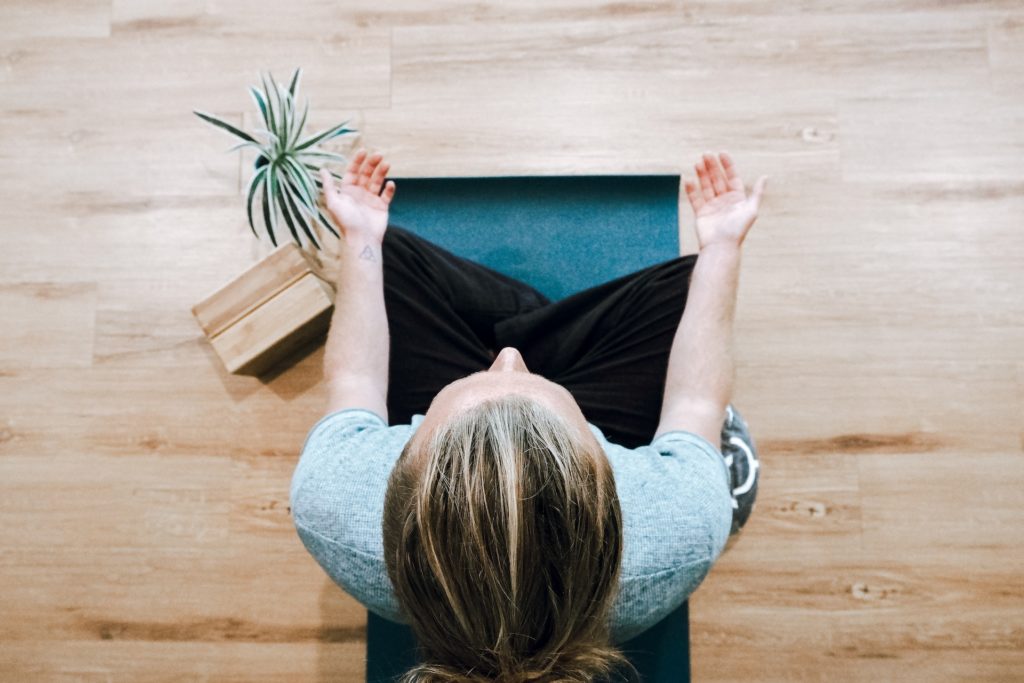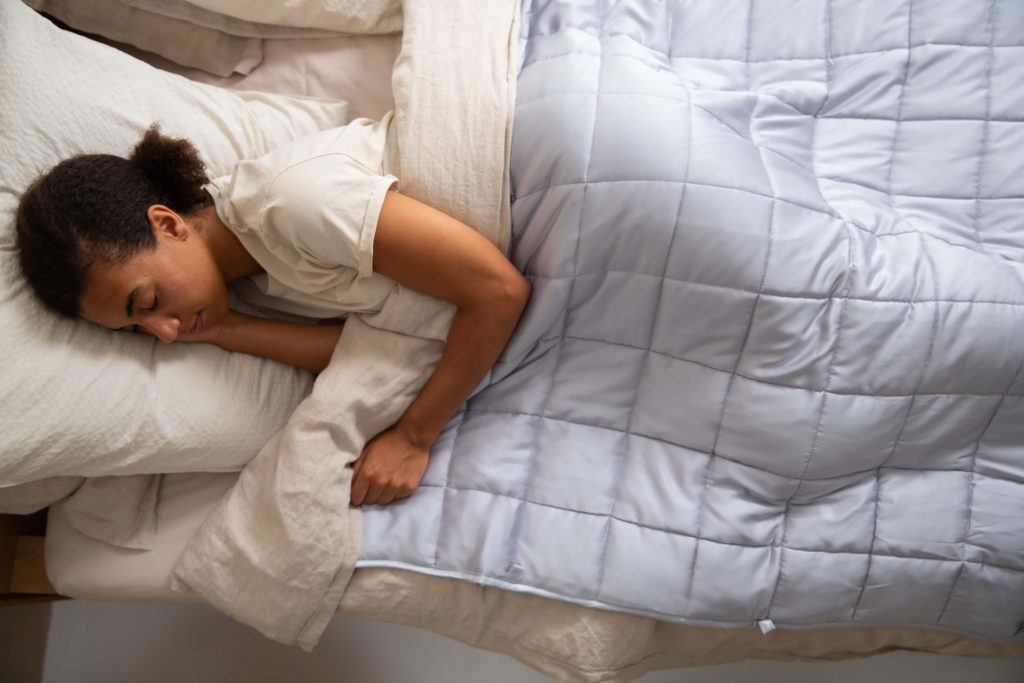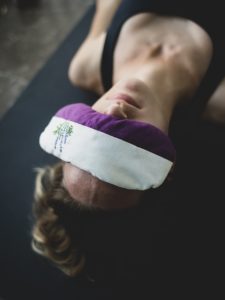Sleep is critical to our overall well-being. It’s necessary for optimal physical and mental health and good quality of life. But, as a society, we’re experiencing a “public health problem” due to insufficient sleep. According to the Centers For Disease Control and Prevention (CDC), more than one-third of American adults is not getting enough sleep on a regular basis.(1)
“In fact, insufficient sleep is prevalent globally and is considered to be a public health epidemic.”
In fact, insufficient sleep is considered to be a global public health epidemic. An article published by the U.S. National Institute of Health, states that insufficient sleep leads to increased incidences of heart disease, increased chances of diabetes, obesity, depression, decreased cognitive function, vehicular accidents, and increased accidents at work. (2)
So How Does Mindfulness Promote Better Sleep?
“Strengthening your ‘mind muscle’ through daily practice helps you better recognize the negative insomnia-inducing thoughts and let them pass.”
Sleep heals our bodies and minds but for many people sufficient sleep eludes them. This is where mindfulness can help. Mindfulness practices can help calm anxieties, slow your heart rate, and quiet the mind, setting the stage for sleep and improving the quality of sleep. “Mindfulness can quiet the brain and allow for deeper sleep,” says Shelby Harris, PhD, a clinical sleep psychologist in private practice in White Plains, NY. “Strengthening your ‘mind muscle’ through daily practice helps you better recognize the negative insomnia-inducing thoughts and let them pass.” (3)
Mindful.org recently put out this helpful free resource – The Ultimate Guide to Mindfulness for Sleep that I think all of my insomniac friends should check out! Topics include Four Mindfulness Dos and Don’ts for a Good Night’s Sleep, Three Ways to Wind Down for Sleep with Mindfulness, How to Calm a Worried Mind: Simple Tips for Falling Asleep, and Morning Mindfulness Bonus: Wake Up and Start Your Day Strong. There’s also an option to sign up for their Free Sleep Series. You’ll get 6 days of mindfulness practices to calm your body & mind emailed to you.
Here are five other helpful tips and techniques to promote better sleep:
Try a Guided Sleep Meditation, Body Scan, or Progressive Muscle Relaxation Practice.
In this relaxation technique, you focus on slowly tensing and then relaxing each muscle group.
This can help you focus on the difference between muscle tension and relaxation. You can become more aware of physical sensations.
In one method of progressive muscle relaxation, you start by tensing and relaxing the muscles in your toes and progressively working your way up to your neck and head. You can also start with your head and neck and work down to your toes. Tense your muscles for about five seconds and then relax for 30 seconds, and repeat.
You can check out the entire article about relaxation techniques from Mayo Clinic and get other relaxation tips here.
Check out my latest 10-minute guided meditation for relaxing into sleep.
Or, try a body scan meditation. Body scan meditations can be very effective mindfulness meditations for sleep.

Listen to Relaxing Music & Binaural Beats
Sounds like a new music genre, right? Not exactly. Binaural beats are a technique of combining two slightly different sound frequencies to create the perception of a single new frequency tone.
Why is exposure to these soundwaves helpful to sleep and relaxation? Science shows that exposure to binaural beats can create changes in the brain’s degree of arousal. Listening to these sounds that create a low-frequency tone, research indicates, triggers a slow-down to brainwave activity—and that may help you relax, lower your anxiety, and make it easier for you to fall asleep and sleep more soundly.
Check out the complete article from Psychology Today about binaural beats here. It’s pretty fascinating.
Here’s a great YouTube video that offers 3-hours of relaxing music for deep sleep.
Try Aromatherapy
The Sleep Doctor, Michael J. Breus, Ph.D., a Clinical Psychologist with a specialty in sleep disorders, shares on his website that a body of research shows that essential oils can provide relief for disrupted sleep and improve sleep quality in adults. A 2017 study compared the effects of aromatherapy and acupressure massage on sleep quality and overall quality of life in women. Researchers found that a blend of sleep-promoting essential oils worked more effectively to improve both sleep quality and quality of life than acupressure. The blended oil was also more effective at improving sleep than a single essential oil, lavender.
Some of the most beneficial essential oils for sleep and relaxation are lavender, vanilla, rose, geranium, and jasmine.
You can read the entire article, 7 Essential Oils For Relaxation And Better Sleep, here.
Try Bedtime Yoga
Intentional, gentle movements before bed can help set the stage for a calm mind and body, promoting more restful sleep. And if you find yourself tossing and turning in the middle of the night, it’s actually better for you to listen to your body and get up, rather than to lay in bed restlessly.
Try this short and gentle 7 Minute Bedtime Yoga mindfulness practice that will help to calm your nervous system and prepare for a healthy night of sleep.
Recipes For Better Sleep

The Better Sleep Council put out this video of beverages that may help you get to sleep easier. I’m a big fan of chamomile or lavender tea an hour before bed. This video goes one step further and shows you how to blend your own teas 🙂
Conclusion
If one relaxation technique doesn’t work for you, try another technique. If none of your efforts at stress reduction seems to work, talk to your doctor about other options.
I hope these tips and resources help you to drift off to dreamland tonight. Remember that relaxation techniques are skills. As with any skill, your ability to relax will improve with practice. Be patient with yourself. Don’t let your effort to practice relaxation techniques become yet another stressor.
Sources:
- Reviewed February 2020; National Center for Chronic Disease Prevention and Health Promotion
- Published December 2018; US National Library of Medicine National Institutes of Health; The Global Problem of Insufficient Sleep and Its Serious Public Health Implications
- Published September 30, 2020; The Ultimate To Mindfulness For Sleep
- Published April 18, 2020; Mayo Clinic; Relaxation techniques: Try these steps to reduce stress
- Published Jun 12, 2018; The Sleep Doctor; 7 Essential Oils For Relaxation And Better Sleep
- The Better Sleep Council; Secrets to Stealing Extra Sleep

